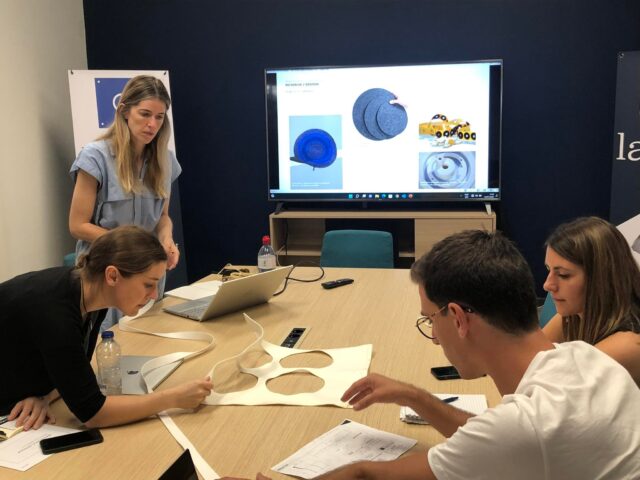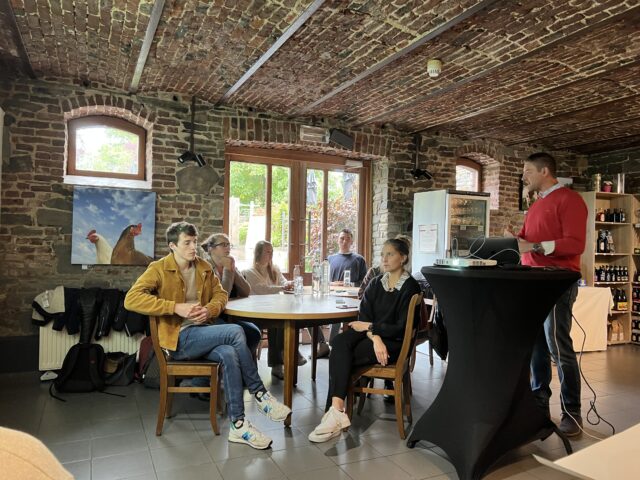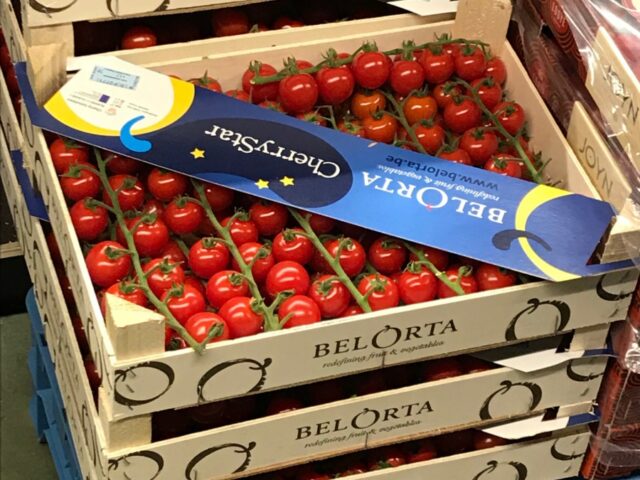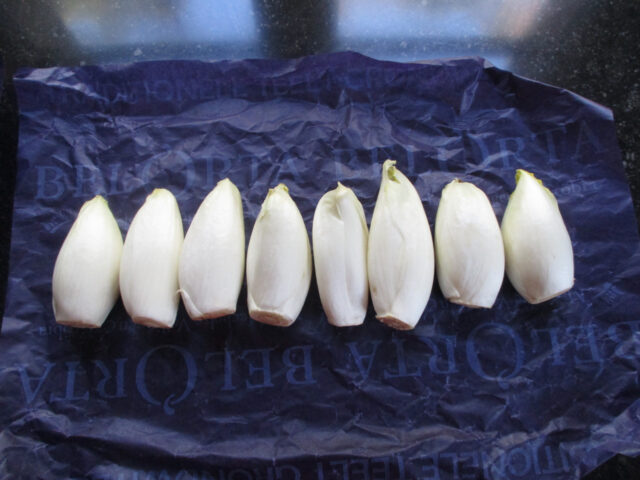Congress and exhibition center MECC Maastricht wants to take further steps in reducing and making its waste streams more sustainable. The often unpredictable mix of materials at the end of trade fairs or conferences still contains too much valuable material that carelessly ends up on the large heap of residual waste. Together with the experts of Wanderful.stream, MECC Maastricht is embarking on an innovation trajectory with a view to more valorisation.
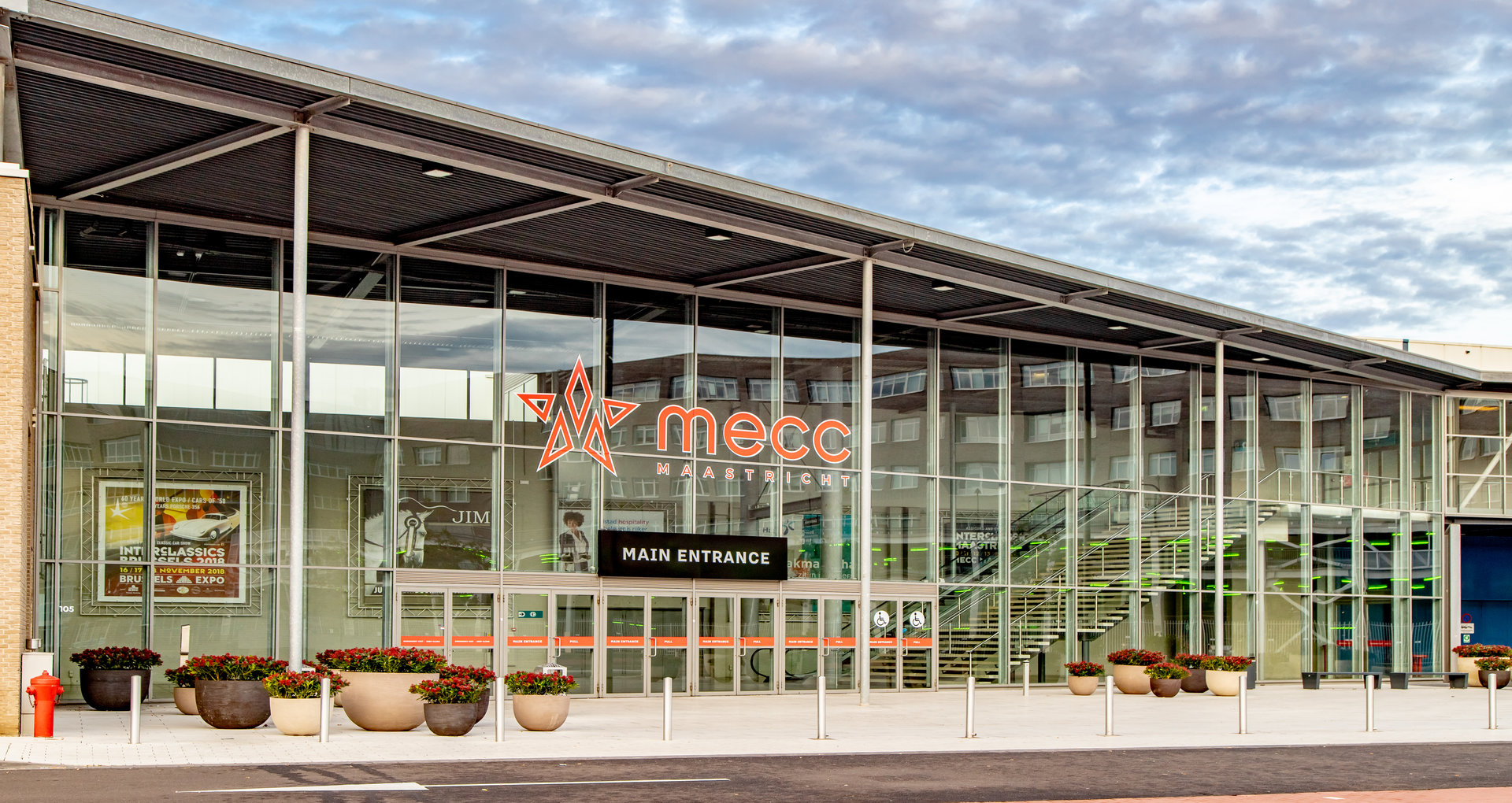
Conference and event location MECC Maastricht was founded in 1988 and has grown into one of Europe’s most hospitable venues for trade fairs of all kinds. In June 2021 it even got an upgrade and the capacity was expanded to no less than 5,000 visitors and good for 30,000 square meters of exhibition space. MECC deals with many different types of waste streams, depending on its customers and the nature of the events. Moreover, it appears to be difficult to separate these waste streams ‘purely’, which is nevertheless an important condition for valorising them. A considerable part of the waste ends up carelessly and wrongly with the residual waste, especially at the end of an event where exhibitors and exhibitors want to go home as quickly as possible and offering waste in the right way is not a priority. The difficulty of separating waste streams is also a consequence of non-circular exhibition design; for example, different materials are combined that are not easy to dismantle, such as wood combined with textile.

DURABLE DISASSEMBLY BOSSES
During the 3-day boot camp of Wanderful.stream, which took place in the Discovery Museum in Kerkrade, a team of students already took a closer look at this challenge. Under the leadership of imagineer Loes Borger, a first creative exploration was done. The concept of the ‘Sustainable Disassembly Bosses’ was then a source of inspiration to effectively start an innovation process. Together with a team of experts, MECC and Wanderful.stream are looking for a new service design around waste management. A team was put together under the supervision of Anja Köppchen of the Discovery Museum, in which (service) design and business development are the main focus. The role of technology can take shape at a later stage.
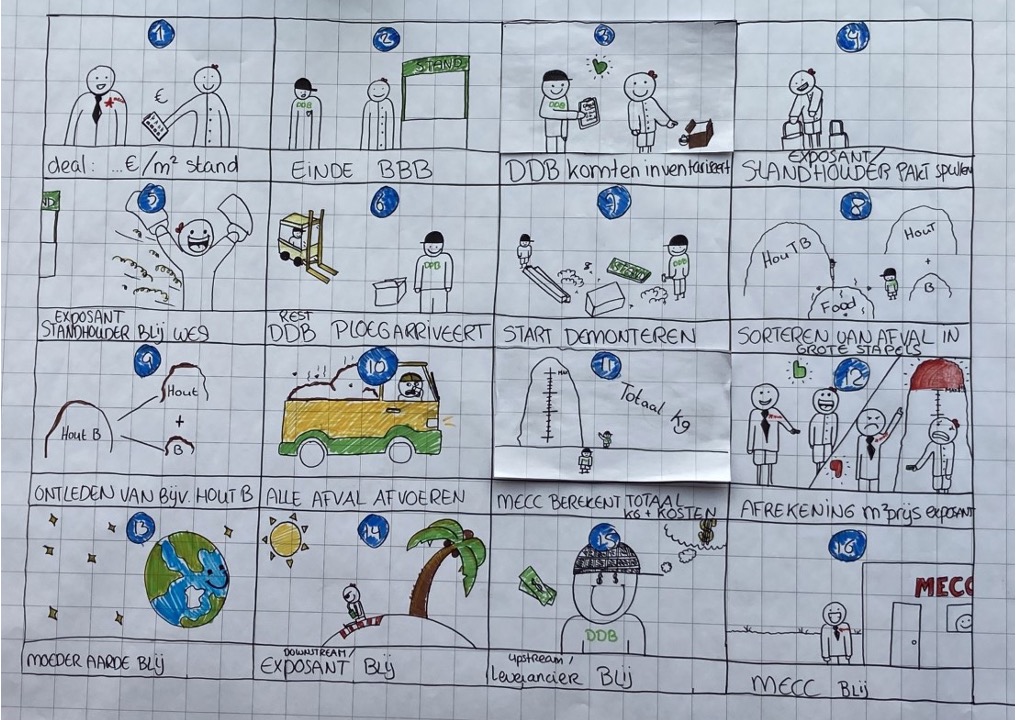
On May 9, 2022, the Wanderful.stream team visited MECC Maastricht to jointly shape the start of the innovation process. Guided by Bart Korpershoek (sales manager), Sheila Steenbakkers (project manager), Erik Janssen (organizer services manager) and Beau Timmers (trainee), a guided tour was held in the renovated conference location, including the internal environmental park. And that MECC has a reputation to uphold in the field of hospitality, as evidenced by the delicious piece of pie from Bekkerie Talentino. After the inspiring tour, service designer Damiën Nunes (UMIO, Maastricht University) facilitated a Stakeholder & Journey Mapping workshop to identify opportunities and challenges from design to reuse. Together with business developer Willem van Hoof (Bluehub), the team explored MECC’s ambitions and vision. What challenges and opportunities there are in terms of making their waste streams more sustainable and how could Wanderful.stream contribute to this.
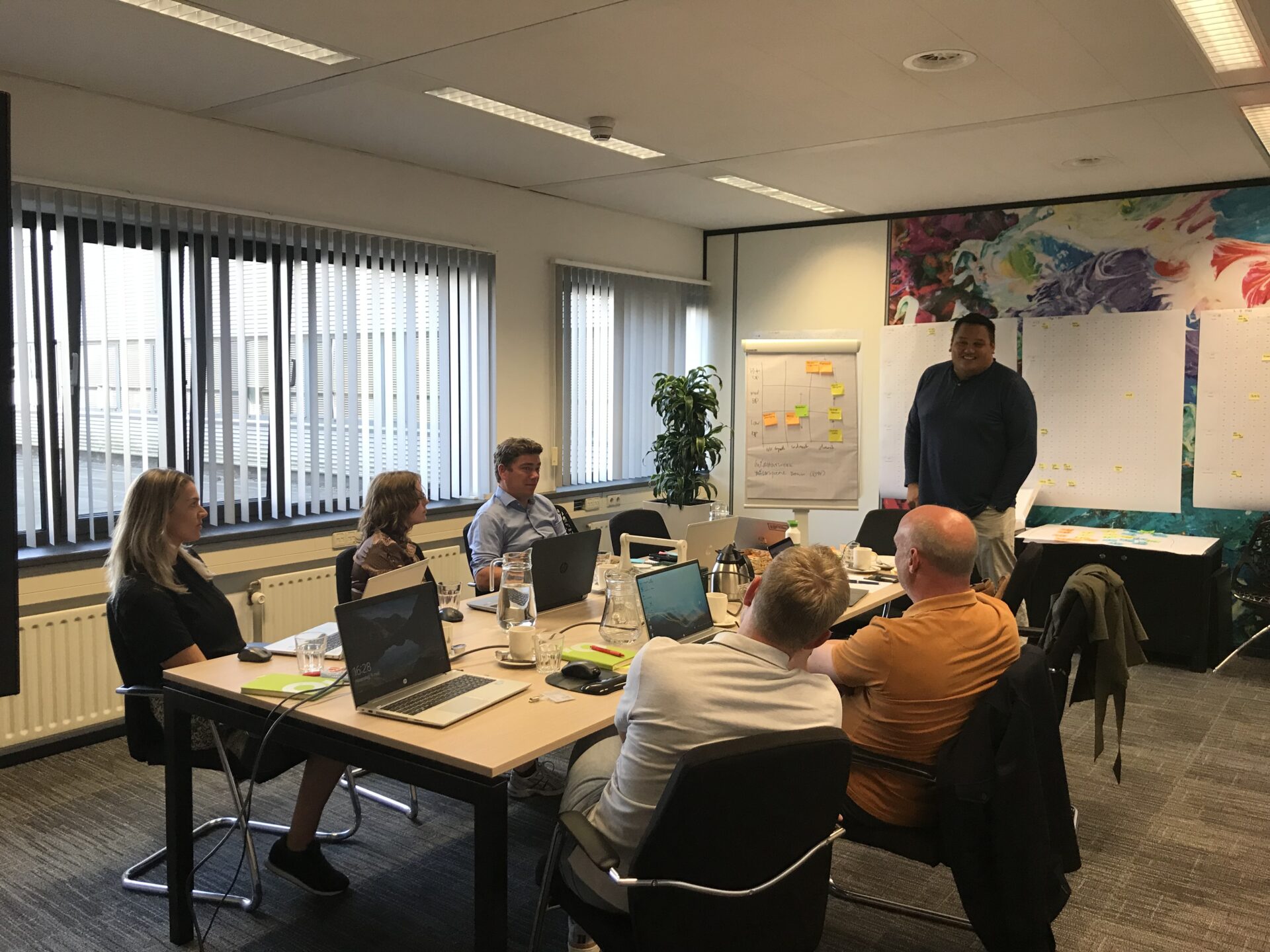
Hospitality: dilemma or opportunity?
The kick-off provided a lot of inspiration, food for thought and positive energy. The MECC team has the drive to really do something – “we already have enough reports”. What we mainly take with us is the importance of hospitality as a distinctive character. MECC wants to unburden customers and relations and not impose anything. At first glance, it seems as if MECC finds itself in a dilemma between encouraging customers to become more sustainable on the one hand, without restricting them in their wishes and needs on the other. Can we turn this dilemma into an opportunity? How can we help various stakeholders to produce less residual waste without this being at the expense of – or even better – contributing to hospitality? Under the supervision of Anja Köppchen of the Discovery Museum, Damien Nunes and Willem van Hoof will be exploring different solutions in the coming months.
